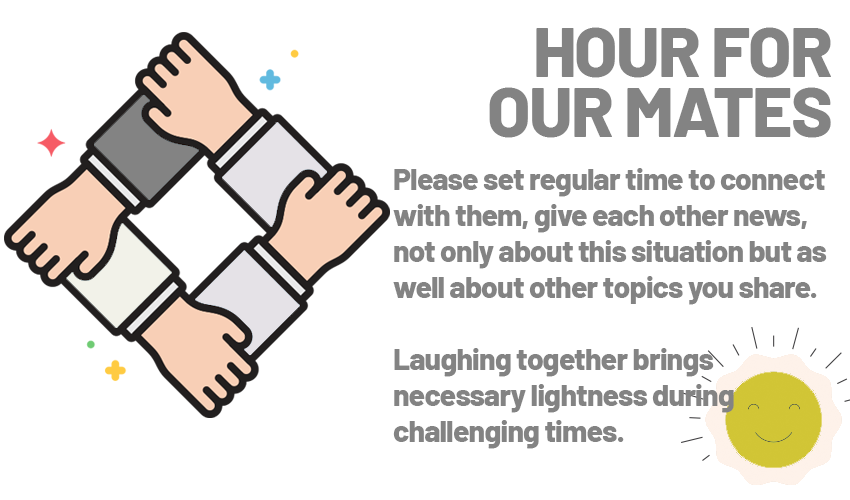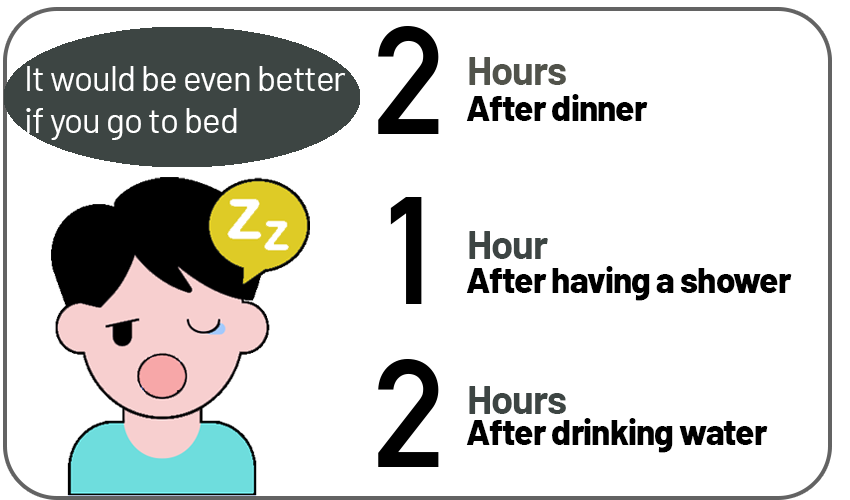overview
It is especially important for frontline healthcare workers (HCW) to be able to recognize their limits and to avoid those limits in their response capacity.
Know the risks, assess your vulnerability and resilience, and keep in mind some of the recommendations that will allow you to maintain your health and professional capacity.
Taking care of oneself is a way of taking better care of others
It allows for better functioning, counteracting the negative impact of a highly stressful situation and ensuring that quality service and patient care is maintained.
Maybe we cannot change what happens around us, but we can have an influence on what happens inside of us! Below are some tips for you when you feel stressed!
Tip 1: Breathing
How to do a good breathing exercise?
Step 1: Find a comfortable, safe place
Step 2: Focus on your breathing, avoiding any disturbing like your mobile
Step 3: Inhale through your nose for five seconds
Step 4: Exhale through your mouth for five seconds
Step 5: Repeat step 3 – 4 for at least one minute
Good job! Just a reminder, try to breathe deeply into your abdomen, rather than in your chest. Your shoulders should go up. You may also put one hand on your belly and one on your chest. 😉
Tip 2: Talk to others
Stay Connected – Hour for ours
Human bonds are the core of resilience. Although physical distance is now necessary and very distressing, you can keep in touch with your loved ones by phone or computer. Set a regular time to connect with them, give each other news, not only about your situation but also other shared topics. Laughing together brings much needed lightness during challenging times.
In some cases, we knew that it may not be that easy to share your difficulties to your friends. Talk to your teammates, colleagues may also be a good choice because you know each other’s work. It is not a must to find the solution but would be great if someone can listen and share what you think in the same way.
Let’s try to give the people you trusted a call today!

Tip 3: Smart way to sleep
 Important: Your mobile device is not your pillow. The blue light wave from the mobile screen sends the wrong message to your brain that it is still day-time. Remove your mobile device from the bed.
Enjoy some relaxing music instead is might be a good choice to help you asleep.
Important: Your mobile device is not your pillow. The blue light wave from the mobile screen sends the wrong message to your brain that it is still day-time. Remove your mobile device from the bed.
Enjoy some relaxing music instead is might be a good choice to help you asleep.Tip 4: Learning from others
This video was broadcasted live by Doctors Without Borders/Médecins Sans Frontières (MSF) as part of our new live series, ‘Let’s talk COVID-19: MSF responds to a pandemic.’ MSF-USA Executive Director Avril Benoît talked with Dr. Kaz de Jong, clinical and health psychologist and Athena Viscusi, clinical social worker. Dr. de Jong currently provides psychosocial support to MSF staff responding to the coronavirus pandemic and other emergencies. Ms. Viscusi is supporting US based MSF staff with the difficult decisions and challenges faced by humanitarian aid workers during this pandemic. In this video, they discussed some of the anxieties we all share in these uncertain times, and how we can take care of our own mental health. They also talked about how aid workers and health workers around the world can cope with intense pressures, exhaustion, and social isolation, as well as manage feelings of guilt, fear, grief, and loss.

